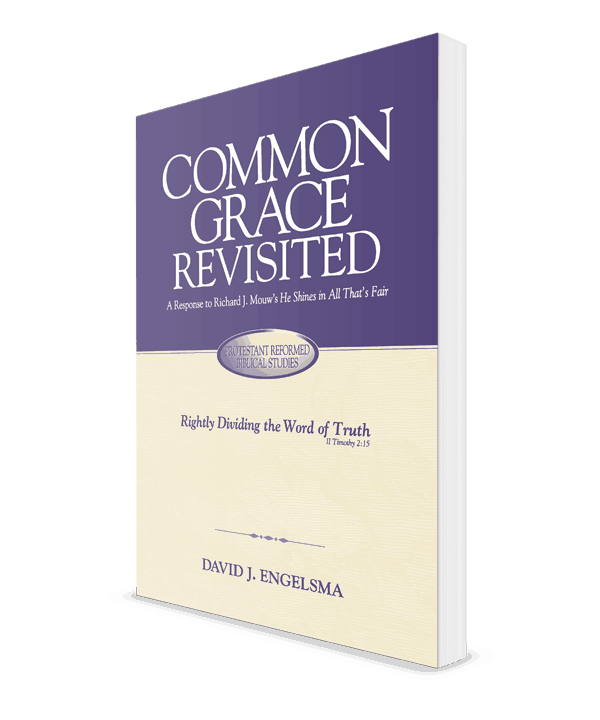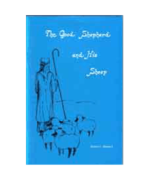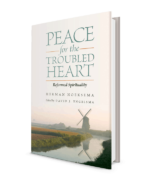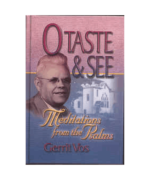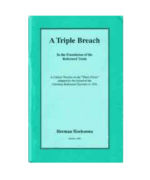Widely known evangelical leader, Richard J. Mouw has recently renewed the case for a common grace of God. In his book, He Shines in All That’s Fair: Culture and Common Grace (Eerdmans, 2001), Dr. Mouw recommends to all Christians the theory of common grace. Mouw contends that common grace is essential for Christian life in society, especially the Christian’s cooperation with non-Christians in forming good, godly culture.
Common Grace Revisited is a response to Mouw’s apology for common grace. It considers Mouw’s arguments for common grace, examines Kuyperian (and now Mouwian) common grace in the light of Scripture and Reformed confessions, and proposes an alternative to common grace as the basis and motive of the Christian’s life in society.
The doctrine of common grace must not go untested. There are solid, indeed urgent, reasons, both theological and practical, for challenging its claim to be part of the body of Reformed truth. Common Grace Revisited presents some of these reasons.
Those who have read He Shines in All That’s Fair, as well as those who accept common grace, perhaps uncritically, as the power of the Christian life in the world, will do well to read Common Grace Revisited.
Prof. David J. Engelsma examines Richard Mouw’s belief that “common grace” prevents the world of the ungodly from being totally depraved, so that the reprobate wicked can, by the power of this non-saving “grace”, do good works and produce a God-honouring culture. This “common grace” means (according to Mouw) that God can take pleasure in the athletic prowess of unbelievers (such as Tiger Woods), that He pities the reprobate in their suffering, and that he wills to bless them with temporal good (although He has eternally decreed their damnation in the way of their sins). Engelsma argues from Scripture and the Reformed creeds that no such “common grace” exists. “Common grace” argues Engelsma is “based on what men see, feel and think as they observe their neighbours in the world” (p. 16), but it lacks scriptural and creedal support.
Does God take pleasure in the sporting achievements of unbelieving sportsmen? “The athletic skills of the ungodly as they are actually put to use, God detests. They are the skills of one who is ungodly in all his abilities and activities. They are of no use to God or man. They desecrate His sabbath. They are part of the insane worship of the sports hero who holds millions in thrall. Honouring these skills is the waste not only of time but of an entire life. God takes no pleasure in the legs of a man (Ps. 147:10). ” writes Engelsma (p. 40). He demonstrates that Scripture and the Reformed creeds teach that all the works of the ungodly are sin, only sin, and never good. They never please God. “Whatever work does not take [God] into account, does not aim at and end in Him, and does not manifest and promote His glory—that work is sin. Gross sin” (p. 36) he writes. “Does the decent family man next door love his wife and children out of faith in Christ? If not, his natural affection is sin, although his failing to be faithful would be greater sin” (p. 40). This is the clear teaching of Westminster Confession 16:7.
Does God pity the wicked in their earthly woes? Does His heart break when reprobate people suffer pain, sorrow, hardship and even death? We are grieved at the suffering of our fellow humans, but does it follow, as Mouw argues in his book, that God is grieved? No, writes Engelsma, “The suffering of the reprobate wicked outside of Jesus Christ does not break the heart of God” (p. 48). Indeed, God as a terrible Judge inflicts temporal and eternal punishment on the wicked.
God has only one purpose and that one purpose has as its goal, its only goal, Jesus Christ. Richard Mouw posits a second purpose in this life: the development by the reprobate of a God-honouring culture. Engelsma argues that “there is no divine purpose with creation and history alongside and independent of Jesus Christ. Nothing, absolutely nothing, is unrelated to Jesus Christ” (p. 81). We may not be able to see how everything in history serves the salvation of the church in Jesus Christ, but one day we will understand: “Then we will see how in the vast, complicated panorama of history every creature and every motion of every creature cooperated, wittingly or unwittingly, in serving Christ and His church. Until then we believe and confess it” (p. 90), writes Engelsma. “Common grace” gives false hope to those outside of Jesus Christ and it is used as an excuse to deny the wrath of God in history, and to break down the antithesis between the church and the world. “Gifted, prominent unbelievers, especially the Tiger Woods of this world, arrogantly suppose that they are quite something in themselves, regardless of Jesus Christ. Common grace with its two-purposes-of-God-in-history idea encourages them in this foolishness. The biblical gospel disabuses them of this folly” (p. 82). Scripture teaches that (in the words of the title of Mouw’s book) He Shines in All That is Fair but as Engelsma explains, this means that, “God shines in the remaining splendour of His creation and in the holy life of the redeemed. The life of the ungodly is foul and He curses it” (p. 95).
“Herman Hoeksema [declared], ‘Believers and unbelievers have everything in common except grace’ and that grace fulfils the Lord’s purpose in Isaiah 43:21: ‘This people have I formed for myself; they shall shew forth my praise.’ Engelsma show how this is worked out in contact with unbelievers” (English Churchman).
“[This book] should be widely circulated” (Christian Observer).
“Thank you for Common Grace Revisited; although the contents are dynamite (!!!) my heart is strangely warmed so I join you ‘outside the camp!’” – England
“Common Grace Revisited by David Engelsma is very useful in exposing the heresy of common grace. Common grace is very dangerous because it infects people with the Arminian poison.” – Lincoln, England
“I recently read the book on ‘common grace’—it was excellent. I just can’t see why people including Richard Mouw can still maintain this doctrine of common grace. If they seriously read the book I find it hard to believe or impossible to believe that they cannot see the truth. I wanted to write to say how well the arguments were defined and how well supported by biblical truth. It was so encouraging, enjoyable and edifying to read Common Grace Revisited.” – France
To read an excerpt of this book, click here.
To read an excerpt of this book in Portuguese, click here.
To read a chapter of this book in Spanish, click here.
Chapter 8 of this book can be read in Polish.


